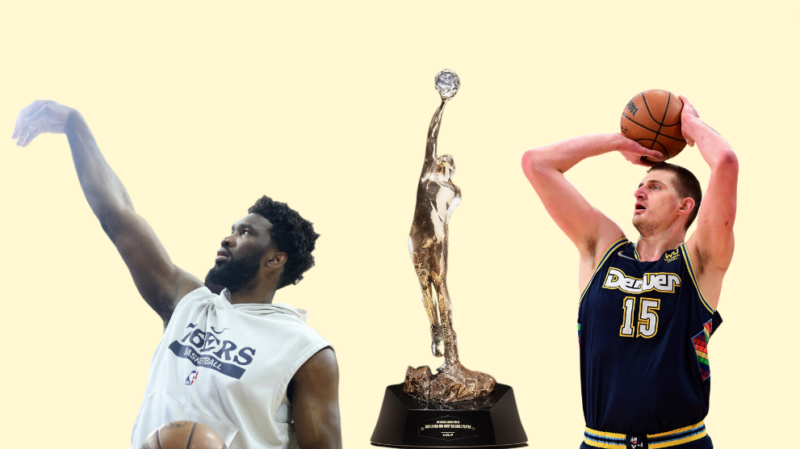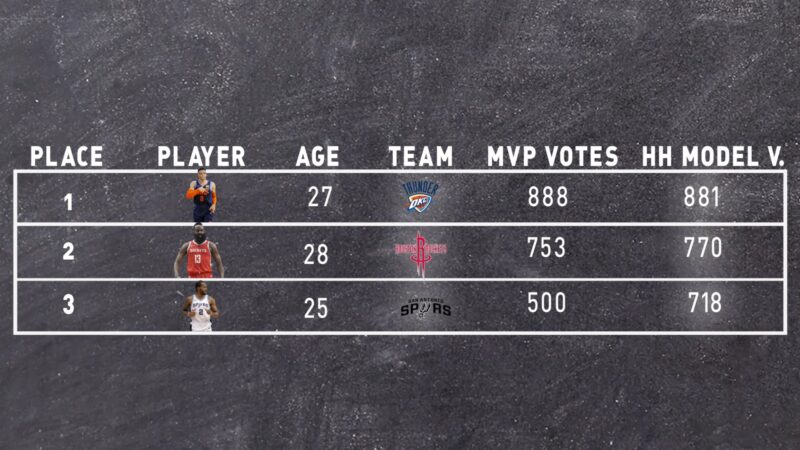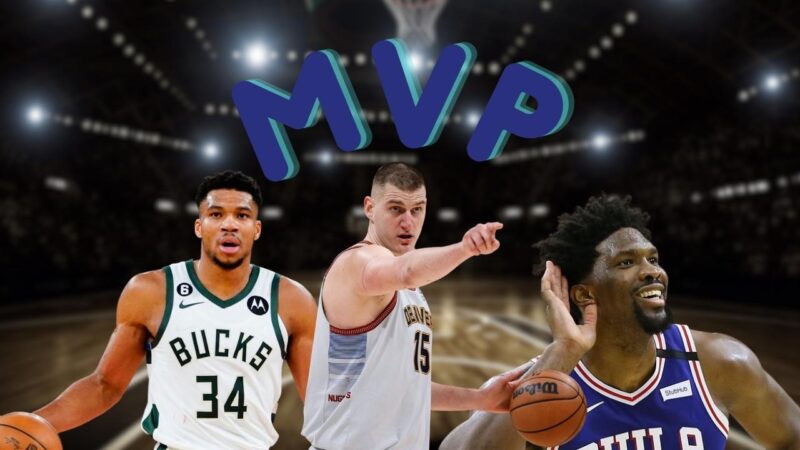The NBA MVP (Most Valuable Player) award is one of the most prestigious and talked-about honors in the world of professional basketball. It doesn’t matter if you’re an avid sports fan or just a casual observer; the subject of “Who will be the next MVP?” has likely come up in conversations at some point.
The decision-making process for this coveted award involves multiple parties and layers of criteria, generating much debate, speculation, and sometimes even controversy. This blog post will provide a detailed breakdown of the MVP voting system, explaining who gets to cast their votes and what they consider when making their decisions.
The Voting Panel: Composition and Criteria
The voting for the NBA MVP is mainly done by a select group of journalists, with recent years incorporating other voices into the mix. Understanding the structure of the voting panel can offer insights into the criteria that are often emphasized.
Media Members
The lion’s share of the voting power rests in the hands of sports journalists. This tradition dates back many decades, affirming the role of the media as the fourth estate, capable of providing a supposedly unbiased viewpoint.
Media members who get the nod are usually those who cover the NBA closely and have shown deep knowledge of the sport. The role of the media in MVP voting is enormous, not just because they comprise a significant part of the voting panel but also because they shape public opinion.
The stories they write, the statistics they emphasize, and even the narratives they craft all influence the larger conversation around who deserves the MVP award. This influence is a double-edged sword, as it can help spotlight deserving candidates while also potentially overshadowing others.
Team Executives

While team executives, including general managers and owners, don’t typically have a direct vote for the MVP, their influence is felt in other ways. They can advocate for their players in press conferences and interviews, indirectly affecting the media and public perception.
The role of team executives in MVP voting is complicated. On one hand, they’re the ones most familiar with the players’ performance, work ethic, and contributions to the team. On the other hand, their vested interest in their players winning can sometimes cloud an unbiased assessment of who truly deserves the award.
This is why their direct influence is usually limited, though it’s worth acknowledging their role in shaping the conversation.
Player Votes
In recent years, there’s been a growing call to include players in the voting process. After all, who knows the game better than those who play it? However, player votes do not count towards the official MVP selection, even though they sometimes run their own unofficial polls.
The argument for including player votes in the MVP decision is strong. Players offer unique insights that even the most experienced journalists might miss. However, there are also concerns about potential bias, as players could vote for teammates or friends.
This debate continues to evolve, and it will be interesting to see if the NBA changes its policy in the future.
The Criteria: Stats, Narrative, and More

Statistics like points, rebounds, and assists play a huge role, but there’s more to the story. Here’s a breakdown of the criteria often used by voters.
Statistical Accomplishments
Stats are the bread and butter of MVP discussions. Points, rebounds, assists, field goal percentages—these numbers form the baseline criteria for assessing a player’s worthiness for the MVP award. Statistics offer a quantifiable measure of a player’s impact on the court.
Whether it’s a scoring champion like James Harden or a triple-double machine like Russell Westbrook, stats are crucial in separating the good from the great. However, statistics alone are not enough to secure the MVP honor. Players with impressive stats on losing teams, for example, often find themselves overlooked in the MVP race.
Team Success
The MVP doesn’t always go to the best player in the league; it usually goes to the best player on one of the best teams. Team success, typically measured by regular-season wins and playoff seeding, is a significant factor in MVP voting.
Why does team success matter so much? The logic is simple: a player’s value is often best demonstrated by how they elevate their team. Exceptional players on mediocre teams might put up big numbers, but if those stats don’t translate to wins, their MVP case weakens.
It’s why you’ll often see MVPs come from top-seeded teams, as their performance is directly correlated with team success.
Narrative and Intangibles
Stats and wins are crucial, but they’re not the whole story. The MVP award also takes into account less quantifiable factors, such as leadership, clutch performance, and even the compelling narratives that develop throughout the season.
The narrative plays a surprisingly big role in MVP voting. Whether it’s the underdog story, the comeback kid, or the rising star, the storylines that develop over the course of a season can capture the imagination of fans and voters alike.
These narratives can sometimes tip the scales in favor of one candidate over another, particularly when stats and team success fail to provide a clear winner.
Transparency and Accountability

How transparent is the MVP voting process, and is there room for improvement? Let’s discuss the mechanisms in place to ensure that the voting process is as fair and accountable as possible.
The Transparency Factor
The NBA has made efforts to be transparent about the MVP voting process. After the votes are cast, the NBA usually discloses the voting breakdown, showing who each voter selected for first, second, third, fourth, and fifth place.
This transparency allows fans and analysts to scrutinize the choices made by individual voters. Transparency serves as a check against potential bias or uninformed voting. By publicly disclosing the ballots, the NBA holds voters accountable for their decisions. This openness is generally well-received, although it can sometimes lead to heated debates and criticisms of individual voters.
Issues and Controversies
Despite the transparency, the MVP voting process is not without its issues. There have been instances of voters making selections that are widely considered to be uninformed or biased. This has led to calls for a more standardized set of criteria for MVP voting.
Another issue is the lack of diversity in the voting panel. While efforts have been made to include a more diverse range of voices, critics argue that the panel still does not fully represent the diversity of the NBA community, which can potentially skew the voting in certain directions.
Room for Improvement
The MVP voting process is continually evolving, and there’s room for improvement. One area under discussion is the inclusion of player and coach votes, which could offer additional perspectives.
There’s also ongoing debate about whether the voting panel should be expanded to include more international journalists, reflecting the global nature of the sport. The NBA MVP award will always be a subject of discussion, debate, and even controversy.
However, understanding the intricacies of who votes and what criteria they use can provide valuable context for these conversations. As the process continues to evolve, one can only hope that it becomes increasingly inclusive, transparent, and reflective of the diverse and global community that the NBA has become.
FAQ

How Often Do Media Members Get to Vote for The MVP Award?
Media members who are part of the voting panel usually get to vote every year, provided they continue to meet the criteria set by the NBA for their eligibility. These criteria often include ongoing coverage of the NBA and a proven track record of expertise in basketball analysis.
Do Former MVP Winners Have Any Say in The Voting Process?
Former MVP winners do not have a formal role in the voting process for the NBA MVP award. While their opinions are often sought by media and fans, and they may publicly endorse candidates, their views do not officially count towards the selection of the MVP.
Are There Any Restrictions on Voting for Players from The Same Team?
There are no formal restrictions that prevent voting panel members from choosing multiple players from the same team. However, this is relatively rare, as MVP candidates from the same team often “split votes,” making it less likely for either to win.
When Does the Voting for The MVP Usually Take Place?
The voting for the NBA MVP typically takes place at the end of the regular season but before the playoffs begin. This is to ensure that the award is based on regular-season performance and not influenced by playoff outcomes, which have their own set of awards like the Finals MVP.
Has There Ever Been a Unanimous MVP Winner in The NBA?
Yes, Stephen Curry of the Golden State Warriors became the first unanimous MVP in NBA history for the 2015-2016 season. This means that he received every first-place vote from the voting panel, a rare feat that speaks to the overwhelming consensus about his impact and performance that season.
Can Rookies Win the NBA MVP Award?
While there is no rule against rookies winning the MVP award, it is extremely rare due to the high level of competition and the adjustment period typically required for newcomers to the NBA. Only two players have won the MVP award in their rookie seasons: Wilt Chamberlain in the 1959-1960 season and Wes Unseld in the 1968-1969 season.
Final Words
There you have it—the complex web of people, criteria, and processes that determine who gets the coveted NBA MVP award. Whether you’re a die-hard fan or a newcomer to the world of basketball, understanding this process adds a fascinating layer to the thrill of the game.
Now, when the next MVP debate heats up, you’ll have more than just an opinion; you’ll have an informed perspective. We’ve recently written about the NBA’s all-time block leaders, so make sure to check it out!
